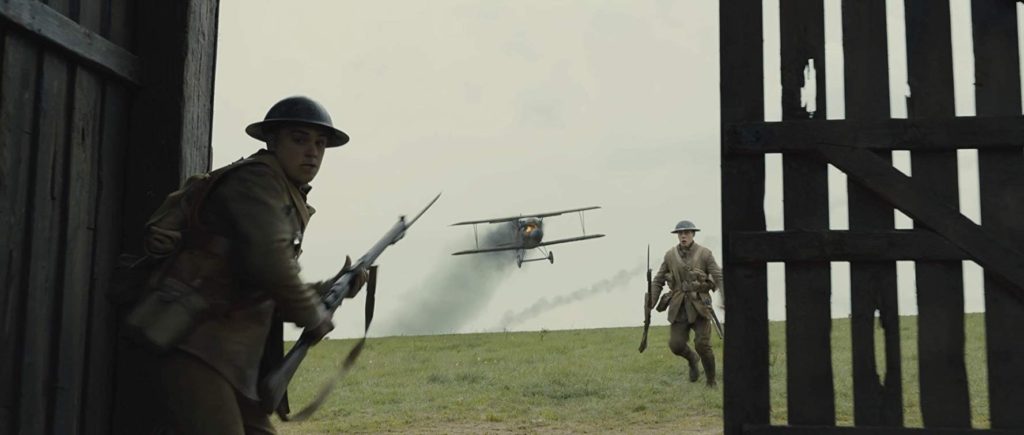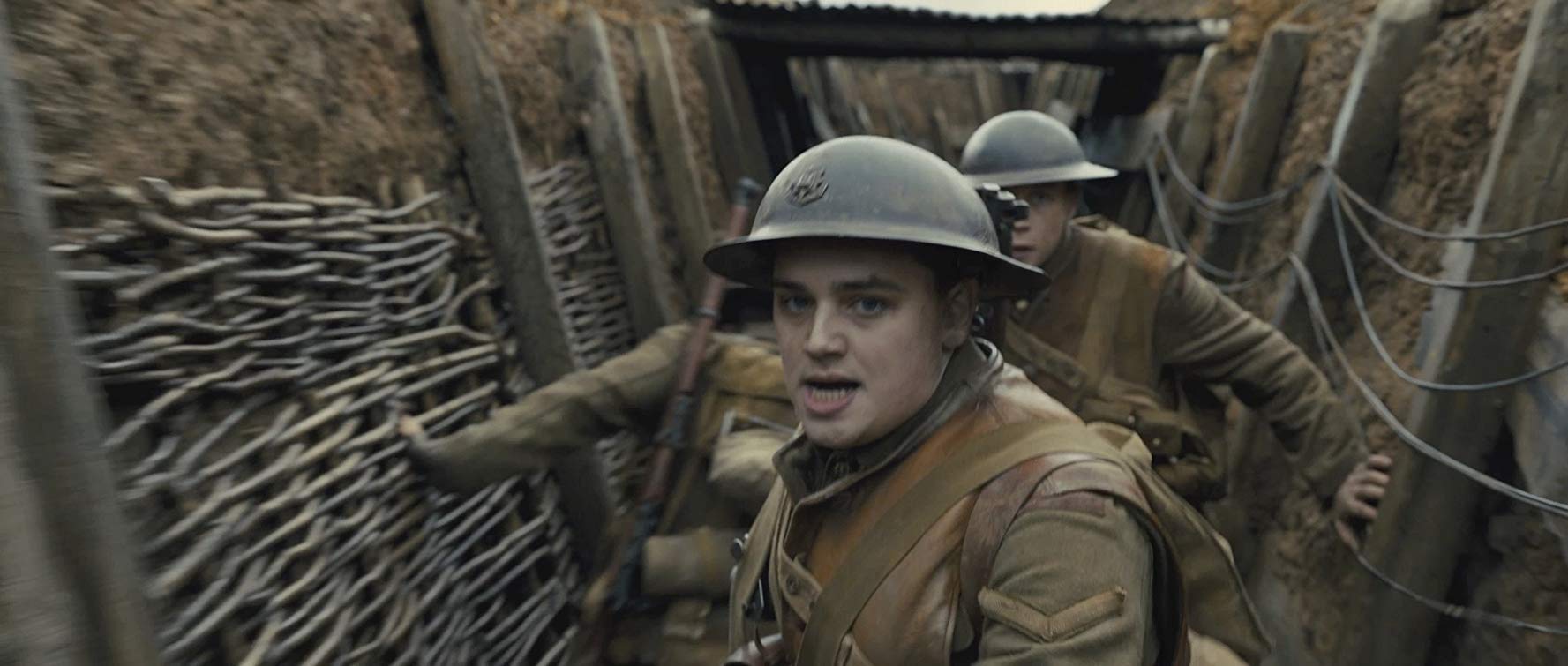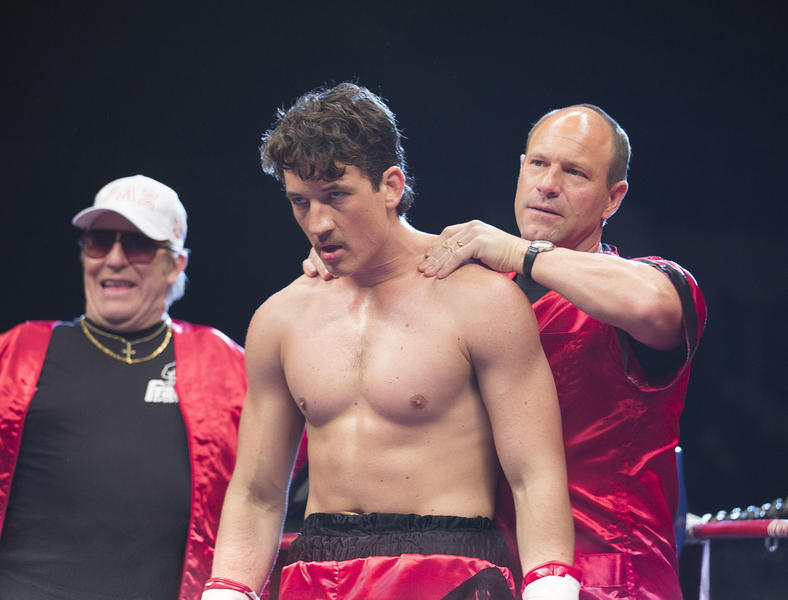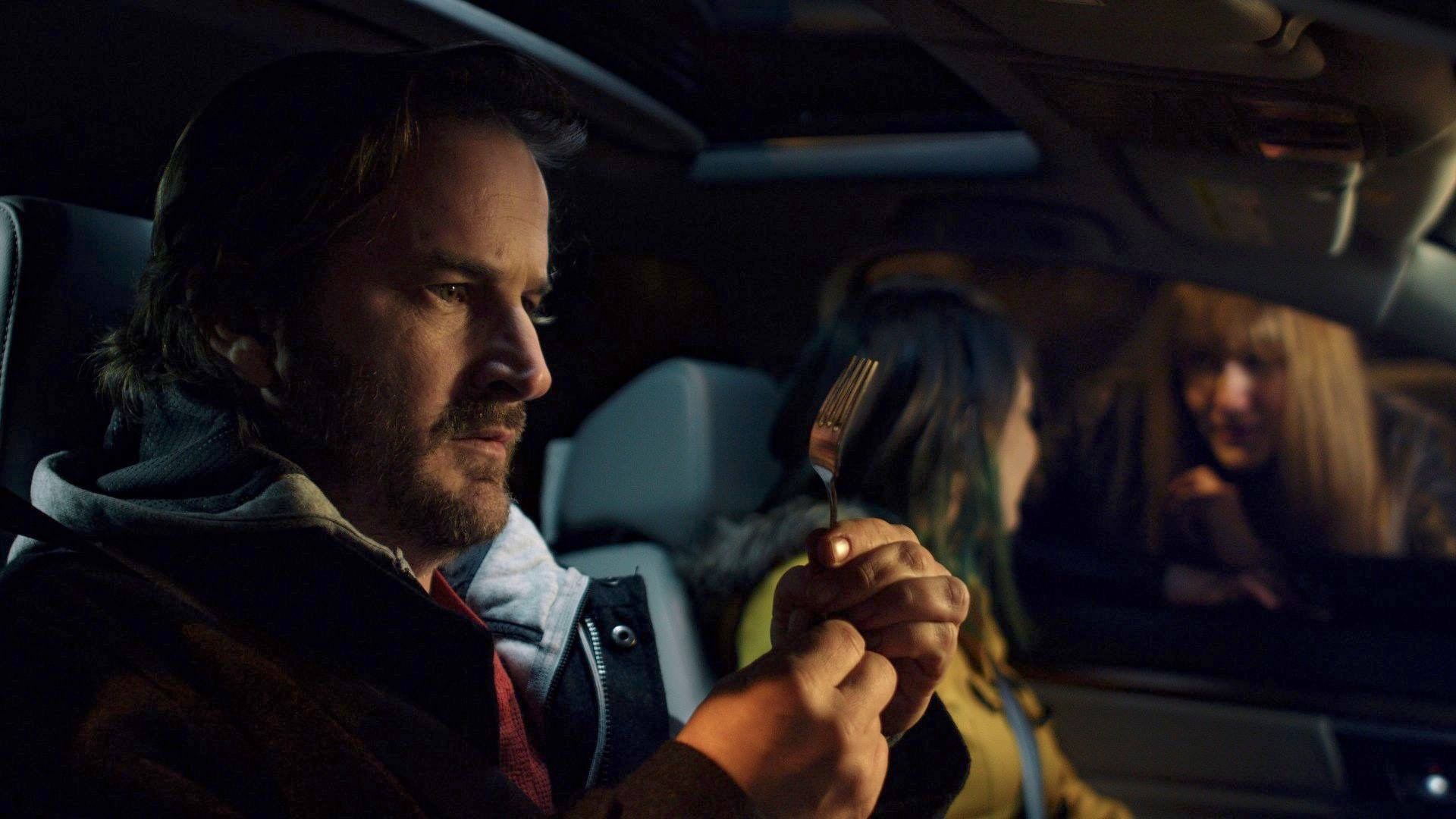1917 was the best film of 2019. I don’t think it’s very close, either. If you have an argument, I’ll hear you out, sure, but the word “Joker” better not be in the first sentence; pretending that particular descent into madness belongs on the same artistic level as 1917 is a descent into madness. I loved Jojo Rabbit, but I’m telling you here and now without the slightest bit of hesitation, exaggeration or sarcasm: 1917 was not only the best film of 2019, it is the only truly great film 2019 had to offer.
Film has spent a lot of time recently in the trenches of WWI. Tolkien, They Shall Not Grow Old, Sgt. Stubby: An American Hero all decided the highlight of a French visit was seeing mud, barbed-wire, and bags of sand. For all the recent footage that laid out the day-to-day horror of trench warfare, none has captured the intensity quite like 1917 (April 6-7, 1917 to be exact), a tale about two ordinary soldiers given one extraordinary mission.
Like a handful of great war films (Saving Private Ryan and Lord of the Rings come to mind), this one is essentially about a suicidal quest. Upon waking, Lance Corporal Tom Blake (Dean-Charles Chapman) and Lance Corporal William Schofield (George McKay) are presented with a nightmare: travel the no man’s land between warring trenches, go deep into enemy territory, alone, and deliver a message to call off tomorrow’s attack. Trust us that the Germans have abandoned their trenches, so you’ll be “safe.” Beeteedubs, if you don’t do this on schedule tomorrow morning, 1,600 English soldiers will die … oh, and one last thing — Tom, your brother Joseph is among the 1,600.
Enough incentive there, boys?
The plot is a classic, but not necessarily original. The part that makes this film an undeniable gem is that it is shot as if one continual take. This technique adds an incredible amount of suspense to the film as the viewer is constantly on the lookout for possible dangers from the viewpoint of the soldiers. By contrast, when you see The Two Towers and the film cuts back and forth from Sam/Frodo to the fellowiship, we the viewers can tell the difference between a scene that’s largely expositional and a scene in which action might take place. That’s no knock on the film; it’s just the way Peter Jackson wanted to tell that particular story. In 1917, there’s no distinct separation between the two and given the fantastic cinematography, we get the best feel in movie history for what it might have been like to be a trench soldier in WWI.
Sure enough, the film makes us endure several rotting corpses and a bumper crop of barbed wire just to get to the German side of the field. All the while, the viewer is intently aware that the heroes are traveling on foot in lands where people die, often. The first thing you notice upon Lance Corporal Blake and Lance Corporal Schofield finding the abandoned German trenches is how much cleaner and more advanced they are; it’s like the difference between a cave and a garage. While it’s hard not to get caught up in German engineering, the whole moment is spoiled by a trip wire. This is why we can’t have nice things.
And the explosion and debris happens, essentially, in real time because the camera never stops rolling … and this is just the first fifteen minutes of our hobbit-like stroll through Mordor.
The result of the continual take is a film that is a brilliant coup of potential action and exposition in every scene. The last film I remember following such a format was the horror Silent House, and while I marveled at the film’s approach, I realize in retrospect that the genre for gimmick presentation was not as optimal as it could have been. In 1917, the horror is present and continual, but the focus never strays from the task at hand. This is an epic piece of work, and –given the circumstances- arguably the best acted film of the year.
1917 owes a lot to Peter Jackson, obviously, but perhaps even more to Saving Private Ryan, which gave us the modern blueprint for individual-quest-within-a-war films. It’s near impossible not to be impressed by the work writer/director Sam Mendes has coordinated for the single-take preparation alone much less the balance of battlefield chaos with the emotional angst one associated with war. As I said above, this is the only 2019 film I would dare call “great.” Maybe this will take the Oscar that was denied Saving Private Ryan.
♪Red Baron, the Kaiser
Europe none-the-wiser
There was Austo-hungaries
Lookout, her come the Yankees
Those two sides, in trenches
Dysentery stenches
They’re both still replete with spleen
‘Cuz It’s 19, 19, 1917♫
Rated R, 119 Minutes
Director: Sam Mendes
Writer: Sam Mendes, Krysty Wilson-Cairns
Genre: Good God y’all
Type of being most likely to enjoy this film: People who still haven’t gotten over Shakespeare in Love winning Best Picture
Type of being least likely to enjoy this film: If intensity isn’t your thing, this ain’t gonna help
♪ Parody Inspired by “1985”




